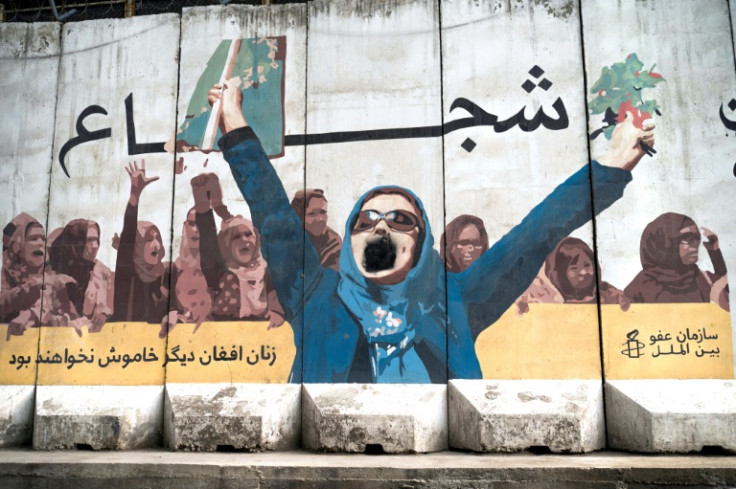
The Taliban has been arresting women for not wearing a hijab "properly", according to its Vice and Virtue Ministry. However, it is not yet clear how many women have been put behind bars for the same.
They reportedly began arresting women soon after they took over Afghanistan in August 2021 for not following the strict dress code imposed by the Taliban authorities. However, the first confirmation only came on Thursday.
"These arrests were to punish some groups who were trying to promote violation of hijab in some cities, and it was for a limited time," Taliban spokesperson Zabiullah Mujahid said on Monday, according to a report in The Independent.
Several images and videos of women being picked up by Taliban fighters have made it to social media platforms.
In 2022, the Taliban government made it mandatory for women to cover themselves from head to toe using a "chadori," an all-covering burqa that also veils the face.
The Taliban's Ministry for the Propagation of Virtue and Prevention of Vice said that it is "required for all respectable Afghan women to wear a hijab," or a headscarf, and added that the chadori is the "best hijab" of choice.
"If a woman is caught without a hijab, her mahram (a male guardian) will be warned. The second time, the guardian will be summoned [by Taliban officials], and after repeated summons, her guardian will be imprisoned for three days," added the statement. The decree even suggested that women should not leave their houses unless necessary.
The spokesperson for the Vice and Virtue Ministry has now said that they have been receiving complaints about women not wearing hijab properly" in Kabul for the last two and a half years.
"These are the few limited women who spread bad hijab in Islamic society. They violated Islamic values and rituals and encouraged society and other respected sisters to go for bad hijab," the spokesperson added.
Today, once again, the Taliban has detained women, this time in the Khairkhana area, north of Kabul City, ostensibly over Hijab.
— Afghan Analyst (@AfghanAnalyst2) January 7, 2024
Social media posts include videos and photos from the scene, showing women in the back of a Taliban Ranger pickup vehicle. pic.twitter.com/9IlHr614hT
The Taliban government has put several restrictions on women's movements and lifestyle since they came to power in the country. Women are being gradually confined to their homes and stripped of all rights.
They claim that these restrictions are meant to enforce the Sharia laws in the country. Sharia represents the moral code and religious law of a prophetic religion and expresses Allah's command for Muslim societies.
If civilians fail to conform to their extreme leaders, they are handed physical punishment and prison sentences.
The Taliban have waged war against women on the pretext of enforcing Sharia laws. They had taken the same approach in the 1990s as well. During their rule in the 1990s, women were not allowed to get an education or step outside without a male chaperone.
Recently, a United Nations report even claimed that the Taliban authorities have been sending female abuse survivors to prison to "protect" them from their abusers.
These survivors of gender-based violence are sent to prison in case they don't have a male guardian or a male relative with whom they could feel "safe".
Similar approach in the 90s:
No one expected the Taliban to do any better than in the 1990s when it came to respecting human rights. However, people did not expect that the group would not change its ways at all.
The complete annihilation of a humane society, which began in August 2021 in Afghanistan, is gradually reaching its tipping point. The group had promised a moderate approach this time, according to their interpretation of Sharia law. However, their approach is far from moderate.
The government has again started amputating, lashing, and executing people for petty crimes such as theft and robbery.
During their rule in Afghanistan between 1996 and 2001, the group would often execute, shoot, amputate, and flog people publicly for crimes of murder, robbery, and prostitution. Sometimes the bodies of people would be put on display. The Kandahar stadium has witnessed many of these heinous punishments.






